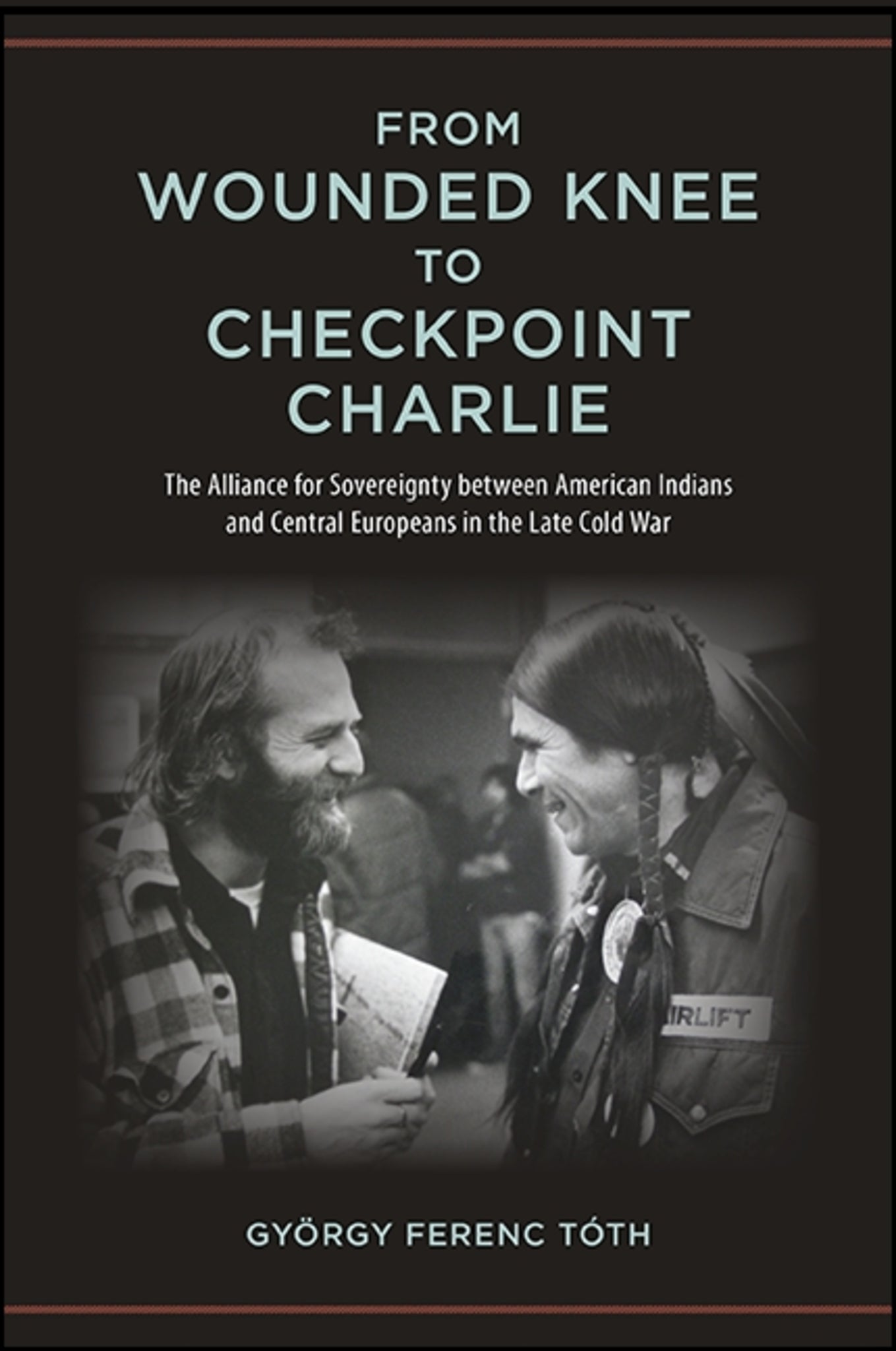We're sorry. An error has occurred
Please cancel or retry.
From Wounded Knee to Checkpoint Charlie

Some error occured while loading the Quick View. Please close the Quick View and try reloading the page.
Couldn't load pickup availability
- Format:
-
02 January 2017

A historical analysis of the transatlantic relations of the American Indian radical sovereignty movement of the late Cold War.
From Wounded Knee to Checkpoint Charlie examines the history of the transatlantic alliance between American Indian sovereignty activists and Central European solidarity groups, and their entry into the United Nations in the 1970s and 1980s. In the late Cold War, Native American activists engaged in transnational diplomacy for nation building by putting outside pressure on the US government for a more progressive Indian policy that reached for the full decolonization of Native American communities into independence. By using extensive multinational archival research complemented by interviews, György Ferenc Tóth investigates how older transatlantic images of American Indians influenced the alliance between Native activists and Central European groups, how this coalition developed and functioned, and how the US government and the regimes of the Eastern Bloc responded to this transatlantic alliance. This book not only places the American Indian radical sovereignty movement in an international context, but also recasts it as a transnational struggle, thus connecting domestic US social and political history to the history of Cold War transatlantic relations and global movements.


"Tóth provides a solidly argued and researched archival study that should be of value to scholars with an interest in Native American transnational studies as well as those in the field of international relations interested in indigenous issues … Tóth provides a detailed, nuanced, and well-articulated study of the transnational linkages, and demonstrates that they were influential." — H-Net Reviews (H-AmIndian)
Preface
Acknowledgments
Introduction: Indians at Checkpoint Charlie
1. "Playing Indian" Revisited: American Indians in the Transatlantic Cultural Landscape
2. There Ain’t No Red in the American Flag: The Indian Sovereignty Movement as a Transnational Challenge to the U.S. Nation State
3. The Rise of the Transatlantic Sovereignty Alliance
4. The Politics of Solidarity in the Transatlantic Sovereignty Alliance
5. "Red" Nations: Marxist Solidarity and the Radical Indian Sovereignty Movement
6. A Trail of New Treaties: Performing American Indian Rights at the United Nations
Photo gallery follows page 168
7. States of Control: U.S. Government Responses to the Transnational Sovereignty Movement
Conclusion: The Transatlantic Sovereignty Alliance and Its Legacy
Notes
Bibliography
Index



